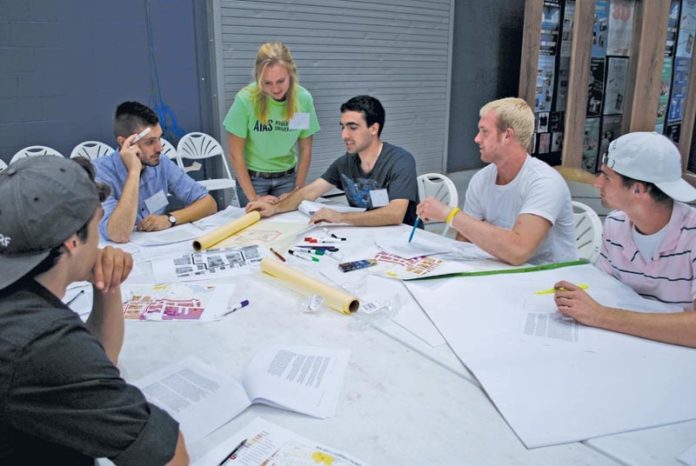
The revitalization of the Broad Street and Elmwood Avenue neighborhoods in South Providence and Main Street in Woonsocket are ambitious goals, requiring study and a multidisciplinary approach. Thankfully, Arnold Robinson has a plan.
Robinson is the director of the Roger Williams University Community Partnerships Center, which just announced a partnership with the R.I. Economic Development Corporation to help these areas.
The Bristol-based school has always had courses that engaged communities and provided services. For example, business classes have interacted with local chambers of commerce and architectural classes have assisted in the design, or preservation, of a municipal building.
Through the center, the university has increased the number of courses in which students can get out and help communities, therein expanding the base of the projects they can take on.
Architecture, historic preservation, law, public administration, business and education studies are all likely to be involved in the projects, all for free.
The focus will be on revitalization efforts by partnering students with government and nonprofit agencies to provide assistance to the businesses along the Broad Street and Elmwood neighborhoods in South Providence as well as Main Street in Woonsocket. For RWU students engaged in these neighborhoods, the experience will provide a setting in which they gain “real-world” technical experience through ongoing curriculum-based projects.
Work has just started in both cities, with students helping business owners on Broad Street while the historic preservation, community development and business programs are engaged in Woonsocket.
One unique aspect will be the addition of legal and justice studies to the neighborhoods, a facet that had previously been evaluated in Providence’s Washington Park area.
“The business communities in those areas have said they had a problem with the perception of crime as well as the actual presence of crime,” Robinson said.
“The [criminal justice] class focuses on the opportunity there is for crime. There are always going to be motivated offenders but there are things that can be done to change the environment, to make crime appear more risky or difficult,” Coon said.
Undergraduates spent time in the field observing the presence of graffiti, public drinking during the daytime and a bevy of other aspects of the neighborhood. They also pored over police reports to examine the presence of theft from autos, home robberies, auto theft and other crimes. They looked at similar cities and what actions were taken to help. This gave students a better familiarity with the community and its problems.
Carla DeStefano, the executive director of Stop Wasting Abandoned Properties Inc. in Providence, said issues such as graffiti vandalism and litter are among the area’s chief problems.
“We would like to create a more destination-based, cultural street, a la Atwells Avenue,” she said. A Consolidated Neighborhood Opportunity Grant of $215,000 from the city will help their cause and the organization plans to combine efforts with Community Works Rhode Island, a community-development corporation as well.
“The businesses along Broad Street work long hours and may not have expertise when it comes to accounting or legal matters. Some might need help with bookkeeping or might have to hire a lawyer. We aren’t looking for them to develop permanent relationships with the students, but the students can certainly help guide them,” DeStefano said. •











